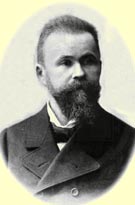Wernicke's aphasia
From Psy3242


Aphasia is a condition caused by neurological damage or disease in which a person's previous capacity to understand or express language is impaired. This may affect a person's ability to speak, listen, read or write.
Carl Wernicke (1848 - 1905) was a German physician, anatomist, psychiatrist and neuropathologist who studied the effects of brain disease on speech and language. He discovered that damage to the left posterior, superior temporal gyrus resulted in deficits in language comprehension and so this area of the brain is now known as Wernicke's area and the associated syndrome as Wernicke's aphasia.
Most cases of aphasia are caused by damage to the left posterior, superior temporal gyrus and this is the dominant hemisphere for approximately 95% of right handed people and 60 - 70% of left handed people.
When a person is affected by Wernicke's aphasia their speech is overflowing with words that do not convey the speaker's meaning. The pitch and rhythm of the speech sound normal but the words may either be used incorrectly or made up of words with no meaning.
It can be possible for children with moderate Wernicke's aphasia, following a head trauma or other neurological event to recover some language ability with the aid of speech therapy. However, when the damage is severe there is less chance.
Wernicke was also responsible for the idea that brain function is highly localised and could be mapped precisely and anatomically.
www.neurology.utoronto.ca, www.wikipedia.com, www.healthline.com, www.everything2.com
